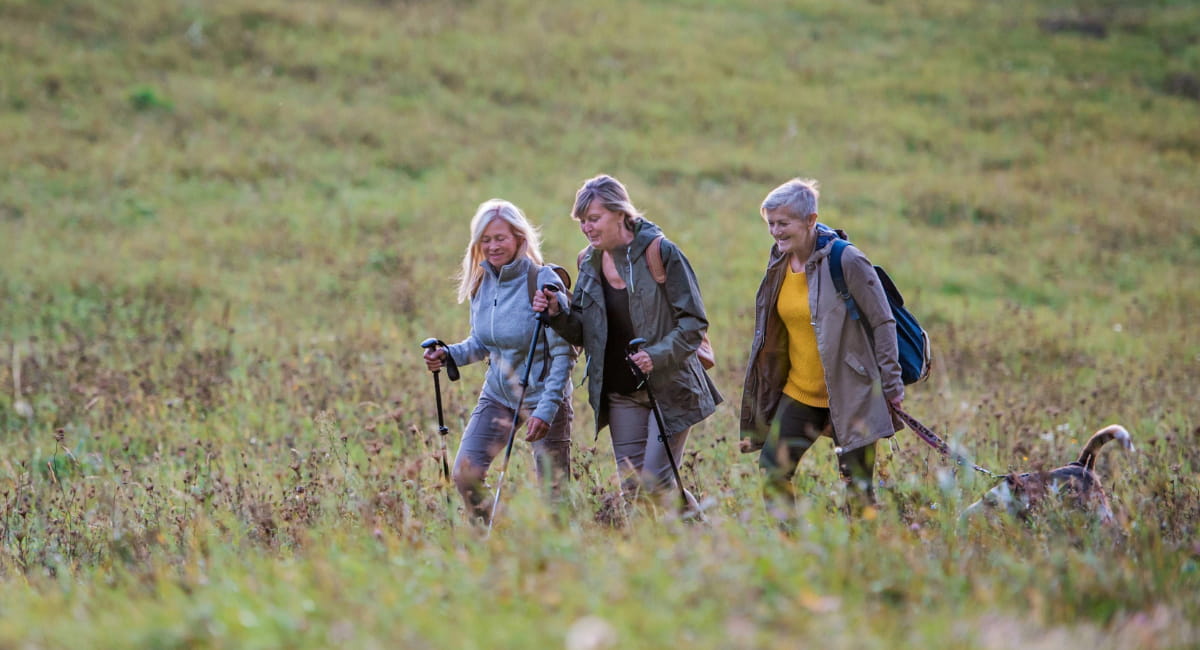“We need to connect. It’s essential for our success as humans.”—Kim Fuller, Counsellor and Team Leader, Australian Unity
Key points
- It’s important to tune into your own needs on a daily basis, and adjust your balance accordingly.
- From family and friends to community groups and online forums, our social connections and relationships are crucial for our wellbeing.
- When life gets busy, identify and prioritise the relationships and connections that matter most to you at that point in time.
Throughout history, humans have relied on social bonds for our survival, just as we have relied on food, water and shelter. The need for connection is deeply rooted in our biology and physiology.
Yet when we’re constantly juggling work, family commitments, chores and the chaos of everyday life, our social networks can easily fall by the wayside.
Kim Fuller, Counsellor and Team Leader at Australian Unity, discusses the Real Wellbeing benefits of our social connections, and how we can balance our relationships with all the competing demands on our time—even when things get hectic.

The power of connection
Have you ever been feeling low or flat, only to have a social interaction boost your spirits?
Social interactions foster feelings of trust, bonding and emotional wellbeing. They shape our identities, and provide support and a sense of belonging. They also allow us to share experiences and gain new perspectives that enrich our understanding of ourselves and the world.
“It goes right back to Maslow’s hierarchy of needs,” explains Kim. “We need to connect. It’s essential for our success as humans.”
It’s little wonder, then, that the Australian Unity Wellbeing Index—an almost-25-year study into the wellbeing of Australians, conducted in partnership with Deakin University—has consistently shown that our personal relationships are a crucial part of the “golden triangle of happiness”, alongside our finances and sense of purpose.
Recent Wellbeing Index research has also reinforced the importance of our connections, showing that people with high levels of social connectedness have notably higher levels of personal wellbeing.
Quite simply, as the research shows, our relationships and social connections help us to thrive.
Building a diverse and healthy support network
The level of social interaction that we need varies widely from person to person, with some people preferring larger social circles and others just a few close connections. But wherever you sit on the introvert–extrovert scale, Kim highlights the importance of having a diverse range of social networks that can support different aspects of your identity.
“We don’t want to put all our eggs in one basket,” she says. “Men tend to do this more than women, and that shows when relationships break down—men tend to struggle more because they don’t have as many different support networks around them.”
One way to diversify your social circles is to write down “I am….” and finish that sentence as many times as you can. For example, “I am a gardener”, “I am a runner”, “I am a book/art/nature lover”. Then look for online or in-person communities that share those interests.

Balancing relationships when life gets busy
Knowing the benefits of our social connections can remind us to prioritise them, just as we would exercise or housework. But our good intentions in all these areas can go out the window when things get busy.
“Balancing daily demands and our need for social connection is really hard,” admits Kim. “I think one of the things that helps is keeping it simple.”
She continues: “So, think about what is most important to you in terms of percentages. For example, maybe I work out that I’m prepared to give 40 percent of my spare time to my son, and just 10 percent to a bake sale—now I’ve put it into proportion, and I’m using that to guide my attention and energy.”
Kim also finds it helpful to “rank” her relationships in order of importance—her son and closest family and friends are “level 1 connections”, then she has “level 2 connections”, and so on. Don’t think of it as assigning more or less value to these people as individuals; instead, treat it as a reminder of where your top priorities and deepest intimacies lie at this time.
No matter how busy life gets, “Make sure that at least once a week you connect with a level 1 friend or family member,” says Kim. “It could be by phone, over Skype or in real life—because, actually, the research shows [the way you connect] doesn't make much difference.”
There’s nothing selfish about self-care
Perhaps Kim’s most important advice around balancing our relationships with our everyday lives is to tune into our needs.
“I think we should all get into the habit of checking in on our wellness every day, using a scale of one to 10,” says Kim. “Keep a record, and if you see yourself tracking down, ask yourself why. How do you feel in your body? What do you need? In our gut we all know what we need.”
That might be seeking out a bit of company and connection, dropping a few commitments, or swapping long lunches for quick coffees. So don’t be afraid to speak up and set some boundaries if you’re feeling overwhelmed or stretched too thin.
“The most important connection we have is to ourselves,” says Kim. “And if we don’t take care of our needs, who will?”
.jpeg)

